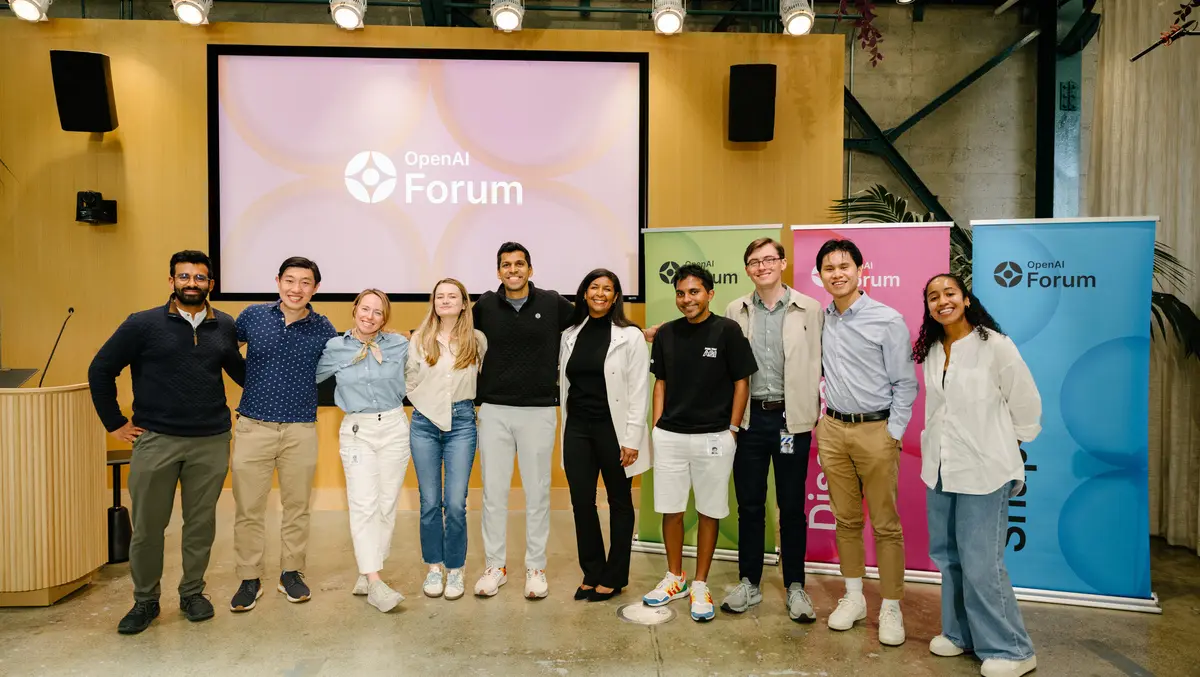
Post-pandemic hiring finds footing as AI transforms tasks, not jobs
The global labour market is emerging from several years of upheaval, but economists at LinkedIn and OpenAI say a new force—generative AI—is beginning to reshape the nature of work in ways that are uneven across sectors.
Speaking at the OpenAI Forum, Dr Karin Kimbrough, Chief Economist at LinkedIn, said, "Right now, I would say the labour market's actually reflecting a lot of macro cyclical effects," rather than widespread AI-driven displacement.
She noted the hiring boom of 2021-2022 has since cooled, with companies largely holding onto talent and new hiring remaining cautious.
"The labour market's looking for normalcy," Kimbrough said. "There's more competition than there was before, but not so much that people can't find a job."
However, this overall stabilisation masks significant disparities. "If you are in what is considered like the knowledge worker space, it might be a lot more competitive for you right now to find the role that you want," she explained. By contrast, "The world is your oyster if you work in [retail, healthcare, or construction] industries."
Kimbrough attributes these trends to structural factors and post-pandemic realignments, not solely to AI. "We are seeing just a huge demand and increase in roles \[in healthcare]. So we're seeing the number of roles open up—it's not just that people are looking for a role and are able to find one."
While job loss due to AI remains a common fear, Kimbrough emphasised that, at this stage, "It's not elimination so much that we're seeing. It's more just people are adjusting, desperately trying to upskill so they can stay relevant."
What is being displaced, she explained, are specific tasks within roles.
"It's how they're spending their time in that role that is changing."
Ronnie Chatterji, Chief Economist at OpenAI, agreed, saying that workers are "rotating from certain tasks to other tasks" rather than seeing their roles eliminated entirely.
LinkedIn's data supports this, with increased emphasis on "AI literacy" - the ability to use AI tools effectively. "One of the fastest growing in-demand skills on the platform by employers is conflict resolution," Kimbrough added. "They're rising in tandem with the demand for AI literacy."
Surprisingly, it's workers in more disrupted sectors - such as communications and marketing - who are most aggressively updating their profiles to signal AI capabilities.
"They need to signal it because the last thing they want to do is be fighting over a job either because an AI could already do half of it or because someone else can do the other half... with AI."
For early-career professionals, the post-pandemic hiring slowdown has been particularly acute. "It's been materially harder for new grads in the last year or so to find a role," Kimbrough said. "Employers are looking at their talent roles being full. Again, no one has quit."
However, historical data offers some reassurance. "What we found... was that people catch up," she said. "In the first couple of years of their career, maybe they don't progress as fast, but eventually they catch up."
She advised graduates to focus on agility, a willingness to learn, and human skills like communication and collaboration. "Even more important [than AI literacy] is communication skills, collaboration skills... leadership."
Kimbrough also spoke about international labour markets, pointing to India as particularly dynamic: "A very young, well-educated, and very dynamic, large domestic economy." Yet she highlighted the challenge of making AI tools locally relevant, citing "accessibility of the digital divide and the relevance" as critical barriers to adoption.
Adoption also varies widely by sector. Education, for example, lags significantly behind industries like finance or healthcare in hiring AI-literate talent. "Even so, we see them growing at really rapid rates. Is itIt's just not at the same rate."
Kimbrough revealed a shift in hiring strategies, noting that employers have reduced backfilling of vacated roles. Instead, they are prioritising new roles, particularly those related to AI.
"If you are working in the AI space... you are just in a position of choice," she said, listing roles such as AI engineer, consultant, and researcher as the fastest-growing on LinkedIn. However, she noted that such an opportunity is not uniform: "If you are in other roles... it's been a little bit more challenging."
The evolving job landscape also means career paths are becoming less linear. "It's far more organic, it is far more skills-based," Kimbrough said. "AI is so powerful, it's going to allow you to pivot into many more options for roles."
Even at the executive level, LinkedIn data shows leaders now emerge from more diverse backgrounds. "So it's okay to have a broader base," she said. "If the thing you have your heart set on isn't working, go do something else and just get started."
The discussion painted a nuanced picture: a stabilising labour market shaped more by macroeconomic tides than AI disruption, at least for now. But as AI adoption deepens, agility, skills signalling, and adaptability may well define success across all sectors.


